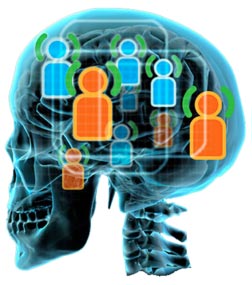[ad name=”Google Adsense-1″]
[Introducing a new author: Liz Gordon is a neuroscience researcher who is currently involved in clinical trials focusing on neurodegenerative conditions]
What is it that makes us who we are? This age old question has fueled the nature vs nurture debate for centuries. The outcomes of this long running debate continue to change and refine as newer technologies not only reveal complex genetic contributions but actively expand and alter our social environment.
In this post I wanted to highlight some issues surrounding a recent article in Scientific American entitled ‘Do Parents Matter?’. While the article itself is a rather contrived interview with Dr Judith Harris – who has just released a new book on the subject – her argument that peers matter more than parents in making us who we are is an interesting one that adds a new voice to the traditional developmental psychology view.
The traditional view is that parents play a critical role in socialising children to exhibit and understand the beliefs, behaviours and attitudes most appropriate for one’s culture. In addition, socialisation provides us with the moral compass and framework upon which to judge our actions, it creates our conscience. However, it is increasingly being shown that influences outside the home environment are the ones that most shape us. This is probably not too surprising when you consider some of the most defining moments in your own life, but it is always useful to open academic channels of dialogue on the subject.

How are social networks changing us?
In a world that is becoming ever more interconnected, with an exponentially increasing amount of information and experience available at our finger tips, Dr Harris’ argument about the social construction of our ethical framework becomes increasingly important to consider.
For a growing number of us, social media and networks such as Facebook are completely changing the way we see our peer groups and the intimate relationship we have with their decision making. Now more than ever we are becoming aware of the day-to-day decisions and thoughts of our peers, which means that any impact our peer groups have on our construction of conscience will be exacerbated and become a more prominent influence.
Could it be that social media will drastically effect the way we as individuals create our ethical and moral boundaries? Will this extreme growth in access to our peers’ thoughts and actions change us for the better? Or will we become more narcissistic as a result, aware of our own virtual identities that are being projected? There are some fascinating behavioural implications of this new shift in our relationships that are yet to be fully comprehended, but it will certainly be interesting to see the changes that might occur.
[ad name=”Google Adsense-Link Banner x4″]




